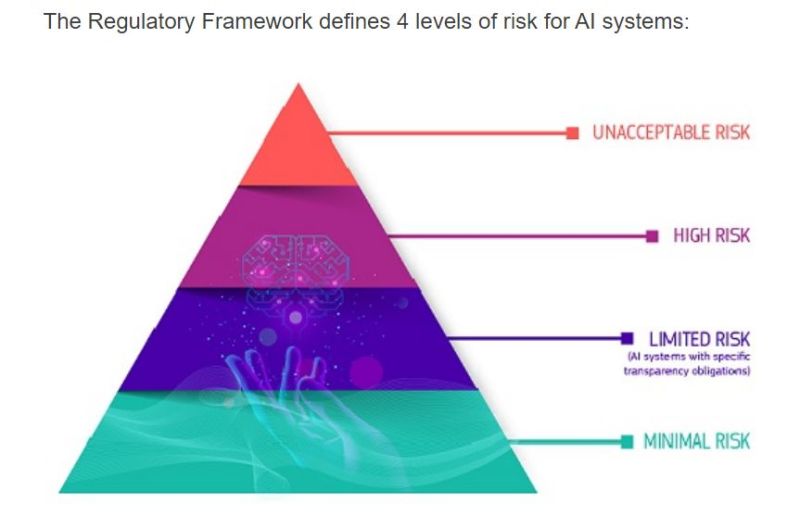Effective 1st August, the European Commission has implemented the world's first comprehensive regulation on artificial intelligence which is referred to as the “European Artificial Intelligence Act (AI Act)”.
The AI Act is designed to ensure that AI developed and used in the EU is trustworthy, with safeguards to protect people's fundamental rights. The regulation aims to establish a harmonized internal market for AI in the EU, encouraging the uptake of this technology and creating a supportive environment for innovation and investment.
The AI Act is based on a product safety and risk-based approach in the EU:
a) Minimal risk: Most AI systems, such as AI-enabled recommender systems and spam filters, fall into this category. These systems face no obligations under the AI Act due to their minimal risk to citizens' rights and safety.
b) Specific transparency risk: AI systems like chatbots must disclose to users that they are interacting with a machine. Certain AI-generated content, including deep fakes, must be labeled as such, and users need to be informed when biometric categorization or emotion recognition systems are being used.
c) High risk: AI systems identified as high-risk will be required to comply with strict requirements, including risk-mitigation systems, high-quality of data sets, logging of activity, detailed documentation, clear user information, human oversight, and a high level of robustness, accuracy, and cybersecurity.
d) Unacceptable risk: AI systems considered a clear threat to the fundamental rights of people will be banned. This includes AI systems or applications that manipulate human behavior to circumvent users' free will, such as toys using voice assistance to encourage the dangerous behavior of minors, systems that allow ‘social scoring' by governments or companies, and certain applications of predictive policing.
Member States have until 2 August 2025 to designate national competent authorities, who will oversee the application of the rules for AI systems and carry out market surveillance activities. The Commission's AI Office will be the key implementation body for the AI Act at EU level, as well as the enforcer for the rules for general-purpose AI models.
Three advisory bodies will support the implementation of the rules.
1) The European Artificial Intelligence Board will ensure a uniform application of the AI Act across EU Member States and will act as the main body for cooperation between the Commission and the Member States.
2) A scientific panel of independent experts will offer technical advice and input on enforcement.
3) The AI Office can also receive guidance from an advisory forum, composed of a diverse set of stakeholders.
https://lnkd.in/ghsvFprD
